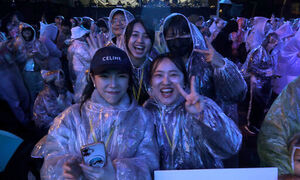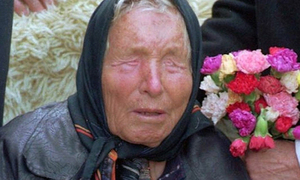The result has been a huge increase in people and wealth. Fifty years ago, the population was about 60,000; now it is just under 3 million, an increase of 50 times, perhaps the largest demographic growth on the planet. Meanwhile, per capita income (including the 94 percent of the population that is foreign) has reached $29,000. This is what locals call the Dubai Miracle. The analyst Mehran Kamrava calls Dubai an “emerging global city.”
As befits capitalist boosterism, emirate leaders obsess over breaking world records, such as the most buildings above 300 meters, the busiest airport for international passenger traffic, and the fastest police car. As a vulnerable emirate surrounded by rapacious states like Iraq and Iran and filled with disenfranchised expatriates, it has sought safety in soft power, from tourism to international arbitration.
Yet, this is capitalism with a difference, where the state plays a major role. Dubai’s leaders, and especially Emir Mohammed bin Rashid Al Maktoum (b. 1949), have directed the economy through direct ownership and a strong guiding hand. As a foreign money manager described the situation to me, “Dubai has mixed origins. The mother, a capitalist, manages the expats and small companies. The father, a socialist, manages the locals and big companies.”
Thus does Dubai fit the “Asian model,” where the “tigers” grew rich with limited freedoms and pervasive government involvement in the economy.
두바이는 ‘신흥 세계도시’다
대니얼 파이프스(중동포럼 총재)
두바이는 탄화수소 보유량이 적고 거기서 얻는 수입은 이 토후국 수입의 2%에 불과하다. 나머지는 상업에서 나온다. 부동산, 항공교통, 관광, 자유무역지대, 미디어, 항만, 금융서비스, 첨단기술 및 과학 연구 등 분야의 상업 벤처사업이 매우 빠르게 전개되고 있다.
그 결과는 사람과 부의 엄청난 증가였다. 50년 전 인구는 대략 6만명이었으나 지금은 50배가 증가한 300만명에 가깝다. 아마 세계에서 가장 큰 인구 증가일 것이다. 한편 94%의 외국인 인구를 포함한 1인당 소득은 2만9000달러에 도달했다. 토착민들은 이를 가리켜 두바이의 기적이라고 부른다. 애널리스트인 메란 캄라바는 두바이를 “신흥 세계도시”라고 부른다.
이 토후국 지도자들은 자본주의에 대한 열렬한 지지에 걸맞게, 대다수가 300m를 넘는 건물들과 국제 승객 수송에서 가장 바쁜 공항 및 가장 빠른 경찰차와 같은 각종 분야에서 세계 기록을 깨는 데 집착한다. 이라크와 이란 같은 탐욕스러운 국가들로 둘러싸여 있고 기본권이 박탈된 외국인들이 가득하여 취약한 토후국인 이 나라는 관광에서부터 국제 중재에 이르는 소프트파워에서 국가의 안전을 찾았다.
그러나 이 나라의 자본주의에는, 국가가 중심 역할을 한다는 차이점이 있다. 두바이의 지도자들 특히 1949년생인 에미르 무하마드 빈 라시드 알 마크툼은 직접 소유 및 강력한 영도력을 통해서 경제를 지휘해 왔다. 한 외국인 금융업자가 필자에게 상황을 묘사한 바와 같이 “두바이는 혼합된 기원을 갖고 있다. 자본주의자인 어머니가 외국인들 및 중소기업 회사들을 관리한다. 사회주의자인 아버지는 지역 주민들 및 대형 회사들을 관리한다.”
그리하여 두바이는 “호랑이들”이 제한된 자유와 정부의 전면적인 경제 개입을 통해 부유해진 “아시아 모델”에 부합된다.
역주=오성환 외신전문위원 suhwo@segye.com
△measly:쥐꼬리만한 △emirate:토후국, 에미레이트 △venture:벤처사업, 모험사업 △hustling:산업 및 상업 △fast and furious:정신없이 빨리 전개되는 △trans shipment:환적 △boosterism:격찬, 열렬한 지지 △obsess over:강박 관념을 갖다 △traffic:수송, 교통, 운행 △disenfranchised:권리를 박탈당한 △rapacious:탐욕스러운 △arbitration:중재 △guiding hand:인도자, 지도자 △money manager:자금 관리인, 금융업자
대니얼 파이프스(중동포럼 총재)
두바이는 탄화수소 보유량이 적고 거기서 얻는 수입은 이 토후국 수입의 2%에 불과하다. 나머지는 상업에서 나온다. 부동산, 항공교통, 관광, 자유무역지대, 미디어, 항만, 금융서비스, 첨단기술 및 과학 연구 등 분야의 상업 벤처사업이 매우 빠르게 전개되고 있다.
그 결과는 사람과 부의 엄청난 증가였다. 50년 전 인구는 대략 6만명이었으나 지금은 50배가 증가한 300만명에 가깝다. 아마 세계에서 가장 큰 인구 증가일 것이다. 한편 94%의 외국인 인구를 포함한 1인당 소득은 2만9000달러에 도달했다. 토착민들은 이를 가리켜 두바이의 기적이라고 부른다. 애널리스트인 메란 캄라바는 두바이를 “신흥 세계도시”라고 부른다.
이 토후국 지도자들은 자본주의에 대한 열렬한 지지에 걸맞게, 대다수가 300m를 넘는 건물들과 국제 승객 수송에서 가장 바쁜 공항 및 가장 빠른 경찰차와 같은 각종 분야에서 세계 기록을 깨는 데 집착한다. 이라크와 이란 같은 탐욕스러운 국가들로 둘러싸여 있고 기본권이 박탈된 외국인들이 가득하여 취약한 토후국인 이 나라는 관광에서부터 국제 중재에 이르는 소프트파워에서 국가의 안전을 찾았다.
그러나 이 나라의 자본주의에는, 국가가 중심 역할을 한다는 차이점이 있다. 두바이의 지도자들 특히 1949년생인 에미르 무하마드 빈 라시드 알 마크툼은 직접 소유 및 강력한 영도력을 통해서 경제를 지휘해 왔다. 한 외국인 금융업자가 필자에게 상황을 묘사한 바와 같이 “두바이는 혼합된 기원을 갖고 있다. 자본주의자인 어머니가 외국인들 및 중소기업 회사들을 관리한다. 사회주의자인 아버지는 지역 주민들 및 대형 회사들을 관리한다.”
그리하여 두바이는 “호랑이들”이 제한된 자유와 정부의 전면적인 경제 개입을 통해 부유해진 “아시아 모델”에 부합된다.
역주=오성환 외신전문위원 suhwo@segye.com
△measly:쥐꼬리만한 △emirate:토후국, 에미레이트 △venture:벤처사업, 모험사업 △hustling:산업 및 상업 △fast and furious:정신없이 빨리 전개되는 △trans shipment:환적 △boosterism:격찬, 열렬한 지지 △obsess over:강박 관념을 갖다 △traffic:수송, 교통, 운행 △disenfranchised:권리를 박탈당한 △rapacious:탐욕스러운 △arbitration:중재 △guiding hand:인도자, 지도자 △money manager:자금 관리인, 금융업자
Copyright ⓒ 세계일보. 무단 전재 및 재배포 금지
![[설왕설래] 아파치 공격헬기 철수](http://img.segye.com/content/image/2026/01/04/128/20260104510004.jpg
)
![[특파원리포트] 한한령은 ‘해제’되지 않는다](http://img.segye.com/content/image/2026/01/04/128/20260104509996.jpg
)
![[구정우칼럼] 쿠팡은 왜 한국인의 신뢰를 잃었나](http://img.segye.com/content/image/2026/01/04/128/20260104509992.jpg
)
![[김정기의호모커뮤니쿠스] 소통 유연성](http://img.segye.com/content/image/2026/01/04/128/20260104509987.jpg
)








